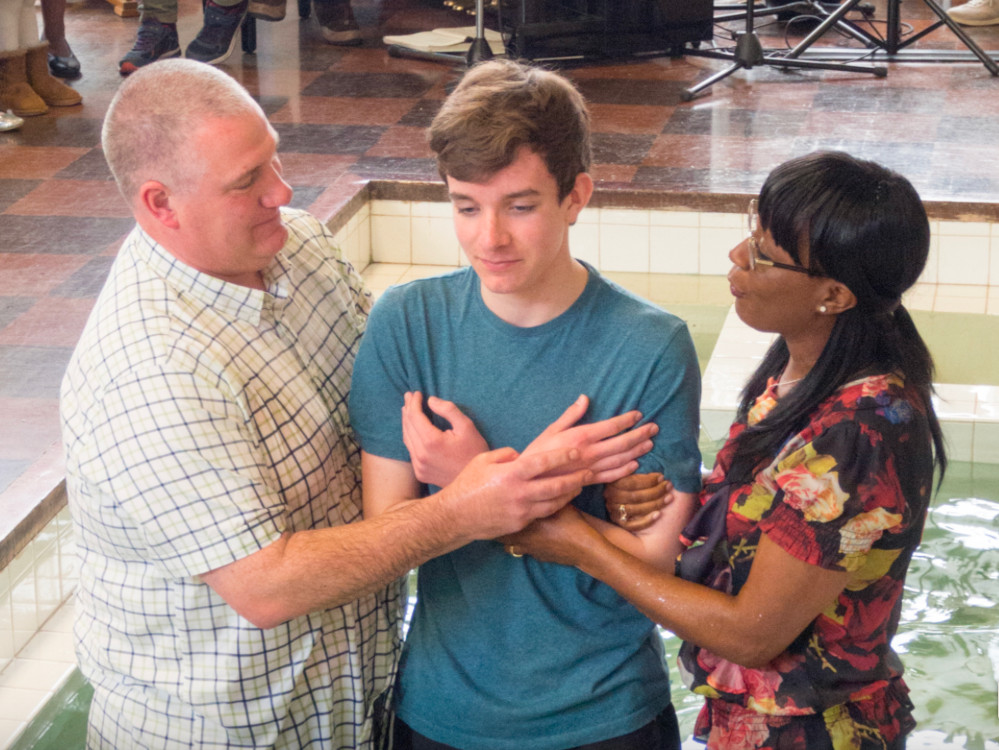The NSW/ACT Baptists have decided not to decide just yet on what to do about churches and pastors who support same-sex marriage.
Last year the NSW/ACT Baptists adopted a “Position Statement” against same-sex marriage. The Baptist Assembly Council brought a report to this year’s Baptist Association Assembly meeting on May 5 and 6 that showed “support for a traditional biblical view of marriage as being exclusively between a man and a woman among voting members of the November [2022] Assembly was around 94%.” The assembly is a body much like the synods or church parliaments in other church networks and denominations.
(A Baptist Association spokesperson has disputed whether the “position statement is against same-sex marriage. For the avoidance of doubt the position statement reads in full: “Marriage is a covenant relationship ordained by God as a lifelong faithful union of one man and one woman. Sexual intimacy outside such a marriage relationship is incompatible with God’s intention for us as his people.” The Other Cheek will leave it to readers to decide if this statement opposes same-sex marriage, while noting that its “incompatibility” language is similar to other church statements that are regarded as being against same-sex marriage such as the Anglicans’ Lambeth 1.10 motion “rejecting homosexual practice as incompatible with Scripture” and the Uniting Methodists Book of Discipline’s “The practice of homosexuality is incompatible with Christian teaching.” It is true that the Baptist’s “incompatibility” language extends beyond same-sex relationships, yet the assembly Council documnets make it clear that member churches supporting same sex marriage are the core of the wider debate.)
But the Council decided not to bring forward motions from the November 2022 meeting that would require churches and accredited pastors to affirm the Position Statement on Marriage every five years. (Update: this sentence previously said “inprinciple motions”. A Baptist spokesperson has said that other motions were in principle, not these.) The council said to require reaffirmation “would cause a greater level of distress and discord among Churches and may lead to the exiting of Churches and Pastors who actually support our basic doctrines, objects, core values and Position Statements. These motions were brought in good faith as a credible way forward. However, it is clear to Council that they would not serve us well as the mechanism of implementation.”
A key problem was what to do with dissident churches that support same-sex marriage. “It is not clear to Assembly Council what process is best employed to engage with already affiliated Churches and already accredited Pastors who cannot support our basic doctrines, objects, core values or Positions Statements. In this, the Council’s view is that we have not yet discerned the mind of Christ.”
Motions from Canberra Baptist, a progressive church that sought a two-thirds majority vote for any disaffiliation of a church or a constitutional change, were tabled – the Council argued that it would be better to look at them away from the heat of the current debate: “the current circumstances make them more controversial and loaded than they need to be.”
A conservative motion from churches in Newtown and Chatwood (Corrected from Campbelltown) that wanted the five-year reaffirmation rule implemented was withdrawn.
An Assembly Council motion to bring proposals to a future meeting was adopted.
An official statement from the Baptist Association emphasises another motion bought by the council. “The focus of the Assembly was to carry out business as defined in the Baptist Association of NSW & ACT constitution and to share the next 3-year strategic priorities of the Association as it moves towards its goal of becoming a Movement of 1000 Healthy Churches in a Generation (GEN1K). These priorities that focused on Developing Leaders, Mobilising Healthy Churches, and Partnering in Ministry, were enthusiastically affirmed by the Assembly.”
From the perspective of this official statement, the assembly was basically about procedure – now that we have position statements, do we want to enforce compliance? And that’s a very Baptist argument on display there, about the autonomy of churches.
In quoting the background papers from the Assembly Council, The Other Cheek is not suggesting that direct arguments about same-sex marriage filled the Assembly discussions on the bday. In fact, the Council report giving a lot of detail probably meant that a lot of what lay behind the motions had already been said. So saying the discussion was about procedure is certainly not wrong. And the GEN1K movement has a claim to be the most significant denominational church planting movement in Australia.
Two other key decisions were made at the assembly. A 30 per cent minimum requirement for female representation on Association boards, passed in principle at earlier meetings, was adopted.
And a new principal for Morling College, with campuses in Sydney and Perth, was appointed. Rev Dr Tim MacBride will take up the position in July. He takes over from Rev Dr Ross Clifford, who will have led the College for over 26 years.
MacBride has been at Morling since 2008 and currently is the Dean of the Bible & Theology faculty, lecturing in New Testament and Preaching. He was a pastor at Narwee Baptist for eight years. A college profile of McBride is here.
Image: A baptism at Northolt Baptist Church in the UK via Wikimedia

